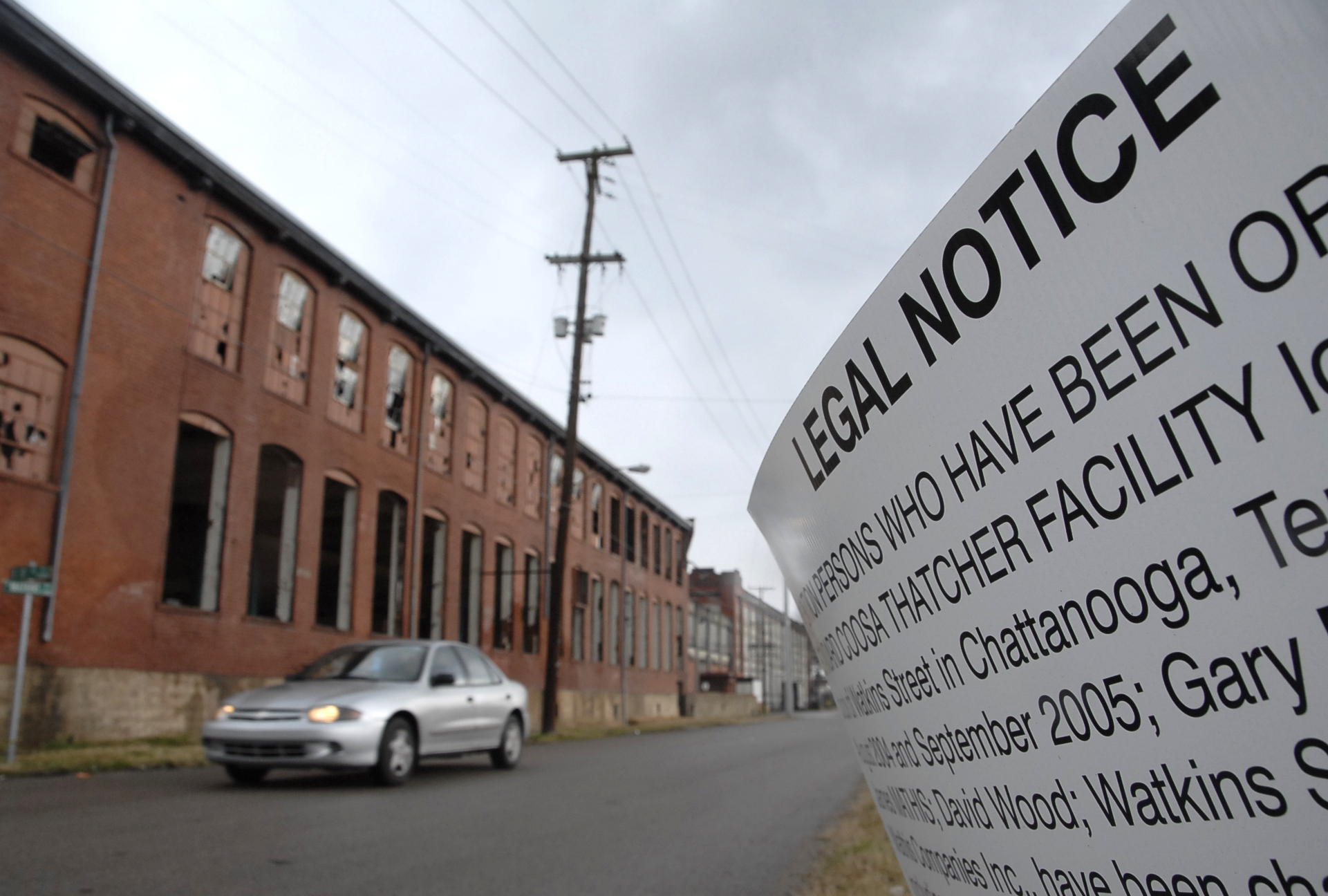A federal judge has sentenced three Chattanoogans for polluting an East Chattanooga community with asbestos during the demolition of an old textile mill.
Don Fillers, David Wood and James Mathis now face federal prison time for conspiracy and violations of the Clean Air Act.
On Monday, Chief U.S. District Judge Curtis Collier sentenced Fillers to four years in federal prison, Wood to 20 months and Mathis to 18 months for their part in spreading asbestos over a demolition site where the former Standard-Coosa-Thatcher plant once stood.
Collier also ordered a $20,000 fine for Fillers and a $30,000 fine for his company, Watkins Street Project, and almost $28,000 in restitution to be paid to the Environmental Protection Agency, Chattanooga Department of Public Works and Chattanooga-Hamilton County Air Pollution Control Bureau.
Defense attorneys previously indicated they plan to appeal the jury's verdict.
All three men are set to report to prison Nov. 16.
Once a common material used for insulation and pipe wraps, asbestos is a substance the U.S. Environmental Protection Agency says causes lung cancer, mesothelioma and asbestosis when its fibers are crumbled or pulverized. EPA has determined there is no safe level of exposure to the airborne fibers.
Between August 2004 and December 2005, demolition created asbestos-containing dust that blew throughout the area of 17th Street between Watkins and Dodds avenues, across the street from residential housing and near a day care center.
Fillers, the property owner, along with his employee, work site foreman Wood and demolition contractor Mathis, were charged in a 10-count indictment with conspiracy to defraud the United States, Clean Air Act violations, false statements, obstruction of justice and aiding and abetting.
The jury found the defendants guilty on all counts save one minor one against Mathis: failure to have a trained (asbestos) individual on site. He alone was found not guilty on that count.
Prosecutors proved that the men "not only lied to authorities to cover up their actions, but they also hired homeless and untrained workers to perform illegal asbestos removal," said Maureen O'Mara, special agent in charge of the Environmental Protection Agency's criminal enforcement program in Tennessee.
Fillers' company, Watkins Street Project, also was found guilty in the case. Similar charges against Mathis' company, Mathis Cos. Inc., were dismissed on recommendation from prosecutors.
Throughout the January trial, prosecutors focused on greed as the prime motive for the uncontrolled demolition, saying it was simply cheaper and faster to tear down the factory without proper oversight over the asbestos.
Defense attorneys for each of the three men claimed in the trial that their clients did not knowingly pollute and placed much of the responsibility on local regulators who could have stopped asbestos exposure with better enforcement.
At the time of the January guilty verdict, U.S. Attorney William Killian said environmental cases such as this one are complex and don't often go to trial. But the verdict in this case is important, he said.
"These sentences send a strong message that criminal violations of environmental laws designed to protect human health from exposure to hazardous substances, such as asbestos, will not be tolerated," Killian said in a news release.
Contact staff writer Pam Sohn at psohn@timesfree press.com or 423-757-6346.
